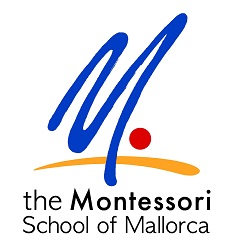The school as a factory?
Traditional schools have not fared well: The models of the child and school on which they are built – the empty vessel in the factory – fit poorly with how humans learn. The school system in a sense trains children to be alike, whereas the economy thrives on variations in individual initiative. In our current information age, when we deal in more of a commerce of ideas and entrepreneurship than in factory production, use of such a model in education should be particularly suspect. Although some children manage to excel in the system regardless, the common cultural attitude is that school is painful and not particularly fun.
I believe this passionately: that we don’t grow into creativity, we grow out of it. Or rather, we get educated out if it. Ken Robinson, Educationalist
Infants have an intense drive to learn, and school-aged children maintain this drive for learning outside of school. Yet from the early years of schooling, children’s motivation to learn in school steadily declines. This suggests that something is very wrong: Learning can be an engaging, inspiring activity, so schooling could be looked on with joy. This mismatch between the models underlying our traditional system of education and the nature of children is at the root of the problem.
Montessori: a scientific education method
Montessori puts the student at the center. It is proven to work. … It’s working on every inhabited continent, at every economic level. The approach is over 100 years old but the ideas are timeless. The world is finally catching up with Maria Montessori’s insights. – Forbes, 8.2.2011
An answer to this crisis in education came with Dr. Maria Montessori, the first female medical doctor in Italy, a century ago. She drew on scientific studies of how children learn, develop and thrive a century ago, and adjusted her schools based on trial and error. She continuously experimented with methods and, based on the results, built a detailed, empirically tested curriculum covering all major subject areas for children from 0 to 12. The importance of her insights is reflected in their similarity to educational principles generated by today’s modern psychological research and neuroscience.
How will your child benefit from our Montessori education?
Academic and social development
The knowledge that children educated in Montessori schools achieve at least equivalent and often better outcomes than children in other schools, not only academically, but also socially. Check out the list of academic research Check out the list of current scientific research on outcomes of a Montessori education (‘Does it work? What research says about Montessori and student outcomes‘ in English and ‘De verdad funciona?‘ in Spanish).
The great majority of published work shows a positive long-term outcome for Montessori-educated children. If you are interested in the details, the Association Montessori Internationale (AMI) keeps an updated list of research studies on Montessori education. Some of the more well-known Montessori alumni are:
- Jeff Bezos, founder & CEO of Amazon.com
- Sergey Brin & Larry Page, founders of Google
- Julia Child, chef and author
- Katherine Graham, past owner and editor, Washington Post
- Bill Gates, founder of Microsoft
- Gabriel Garcia Marquez, Nobel Prize winner for Literature
- Helen Hunt, actress, film director, and screen writer
- Mark Zuckerberg, co-founder of Facebook
- Jimmy Wales, founder of Wikipedia
- George Clooney, actor
- Anne Frank, WWII diarist
- Gabriel Garcia Marquez, Nobel Prize winner for Literature
Continuous evaluation, no homework
Instead of tests and exams, our school uses structured and continuous evaluation through observation of your child’s progress for our children from 3 to 12 years. Only in our Upper Primary class, we slowly introduce exams in preparation for Secondary education. Further, there is no homework for our children in Primary education. This allows you and your children to fully enjoy this precious time of growing up in a great place like Mallorca without an unnecessary focus on one-dimensional measurements like marks.
Individual capabilities
Your child’s education is based on making the most of your child’s individual capabilities. Your child will have the ability to embrace challenges with curiosity and enthusiasm. Your child can develop naturally and fully at her/his own pace and rhythm, according to their individual capabilities. Under the guidance of a certified Montessori teacher, in a specially prepared environment and using carefully designed materials, children in our school are given the opportunity to learn in the best ways – by choice and by discovery.
A key element to Montessori Education is that it stresses “learning how to learn”. Students are encouraged to do their own research, analyse their findings, and come to their own conclusions. Montessori teaches students to think, not simply to memorise, reproduce on tests or exams and forget. They literally learn how to learn, discovering along the way that the process of learning is fun! Learning the right answers may get you through a test, but learning how to learn will get you successfully through life.
National curriculum for England
While the Montessori School of Mallorca uses a Montessori approach and curriculum for girls and boys from 3 to 12 years, our learning outcomes are based on the National Curriculum for England. In some cases, our curriculum goes well beyond the national curriculum in many subjects. Our compliance with the national curriculum is regularly assured through an accreditation by the British Council. Further, the school is regularly authorised by the Spanish authorities as an international school in Spain.
Based on: ‘Montessori: The Science Behind the Genius’, Angeline Stoll Lillard (2005), Oxford University Press; Frequently Asked Questions, Montessori St Nicholas; ‘Reach Further: Montessori education for the over fives – learning for life and living to learn’, Montessori St. Nicholas; FAQs, The International Montessori Index; FAQ, American Montessori Society
